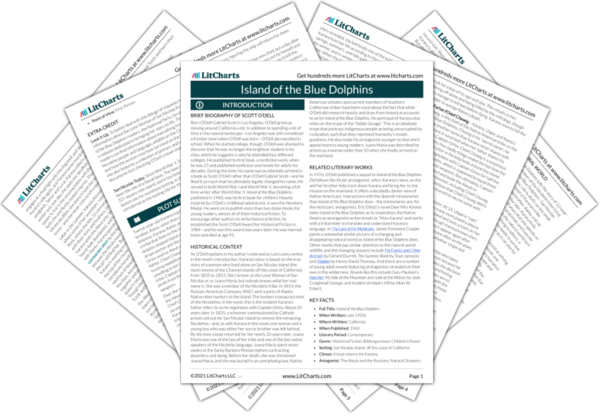It's a difficult decision to turn back, but it
is a choice. This makes it easier for her to deal with, especially when the dolphins show up to escort her back. They make it seem like the natural world is rallying around Karana to get her back to the island safe and sound—and they suggest that being on the island alone might not be such a terrible thing. When she thinks of the dolphins as friends, this also shows Karana starting to move away from being friends only with people. If she’s going to live alone on the island, she’s going to have to look for some new friends.


